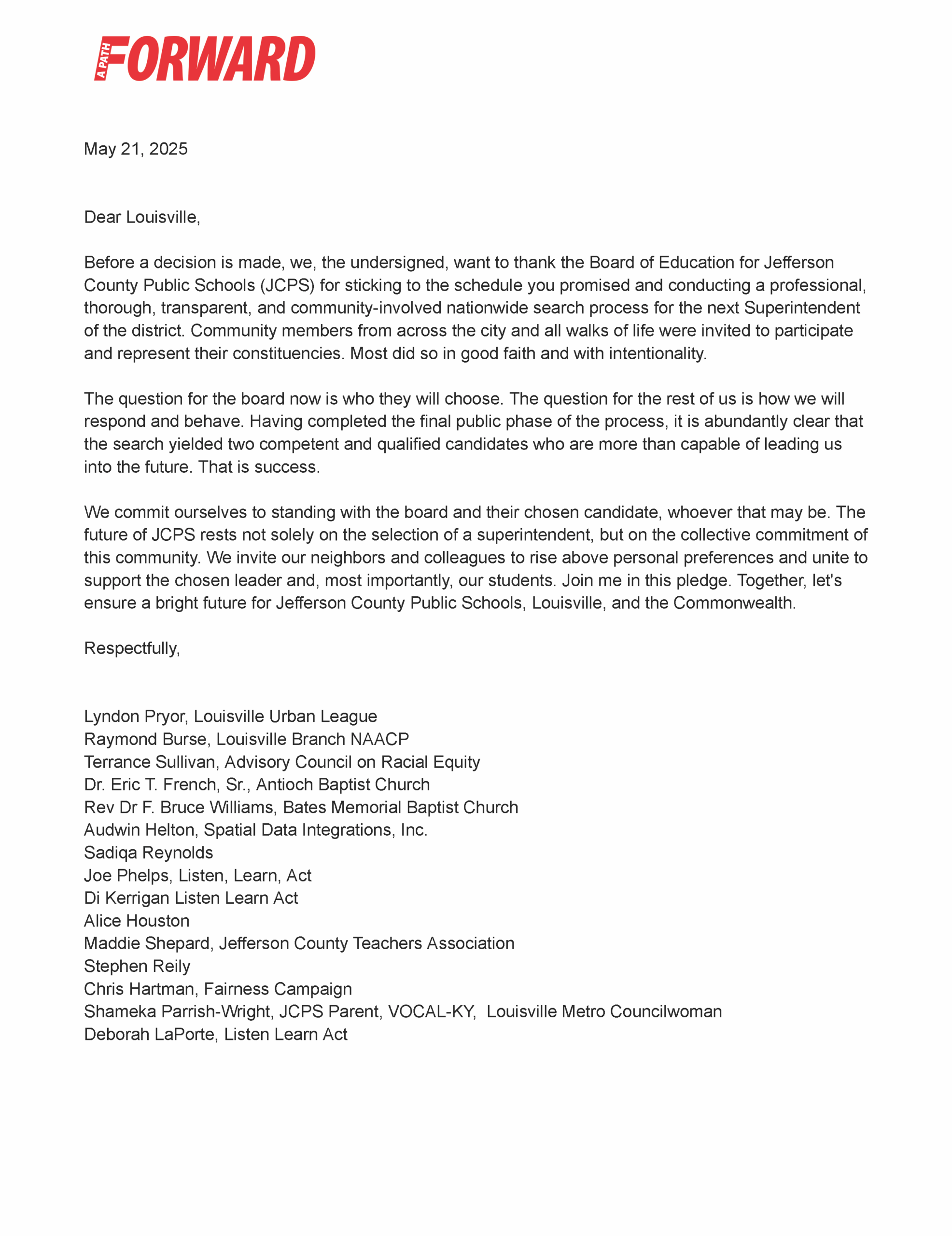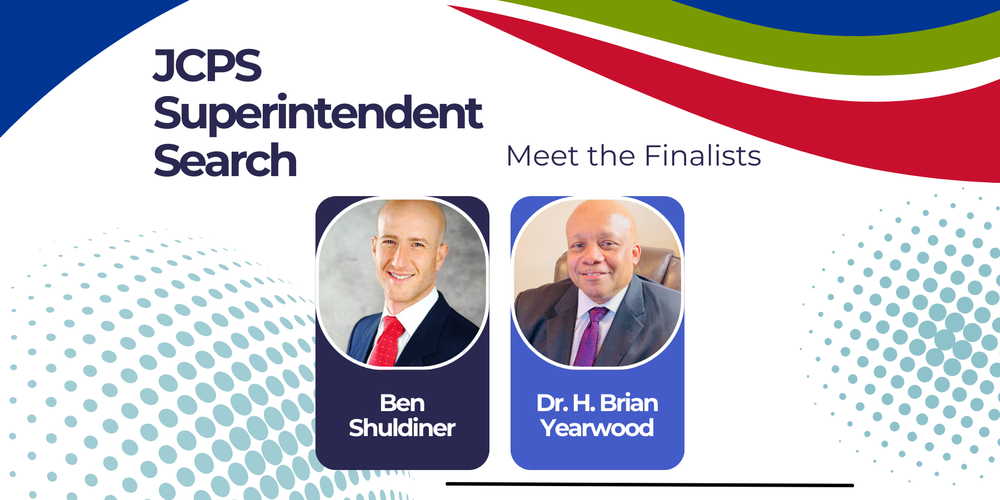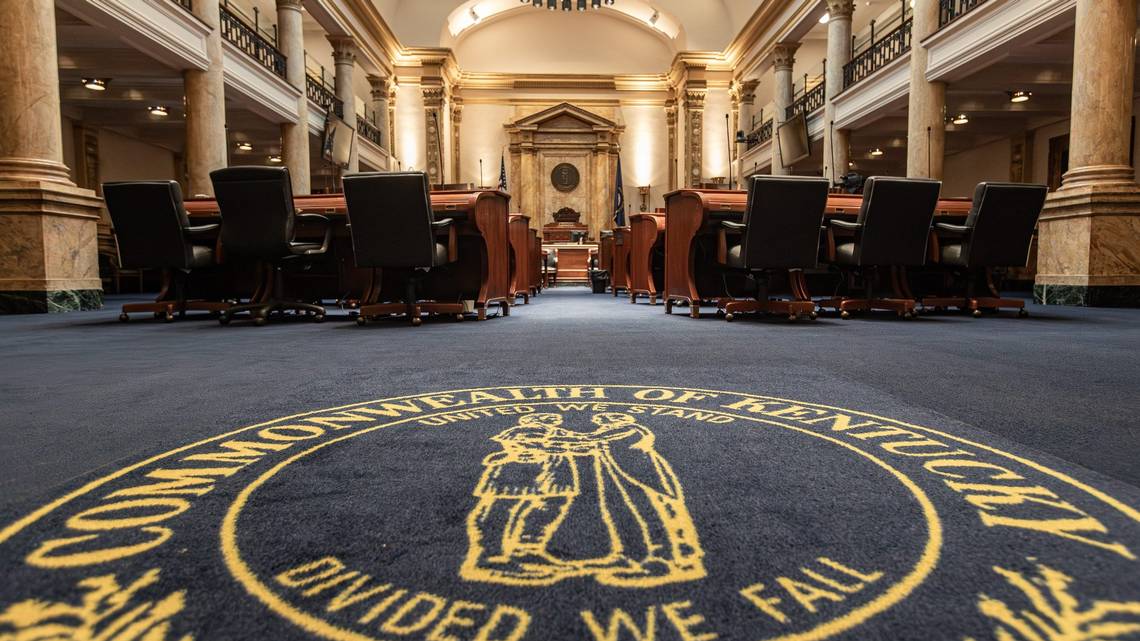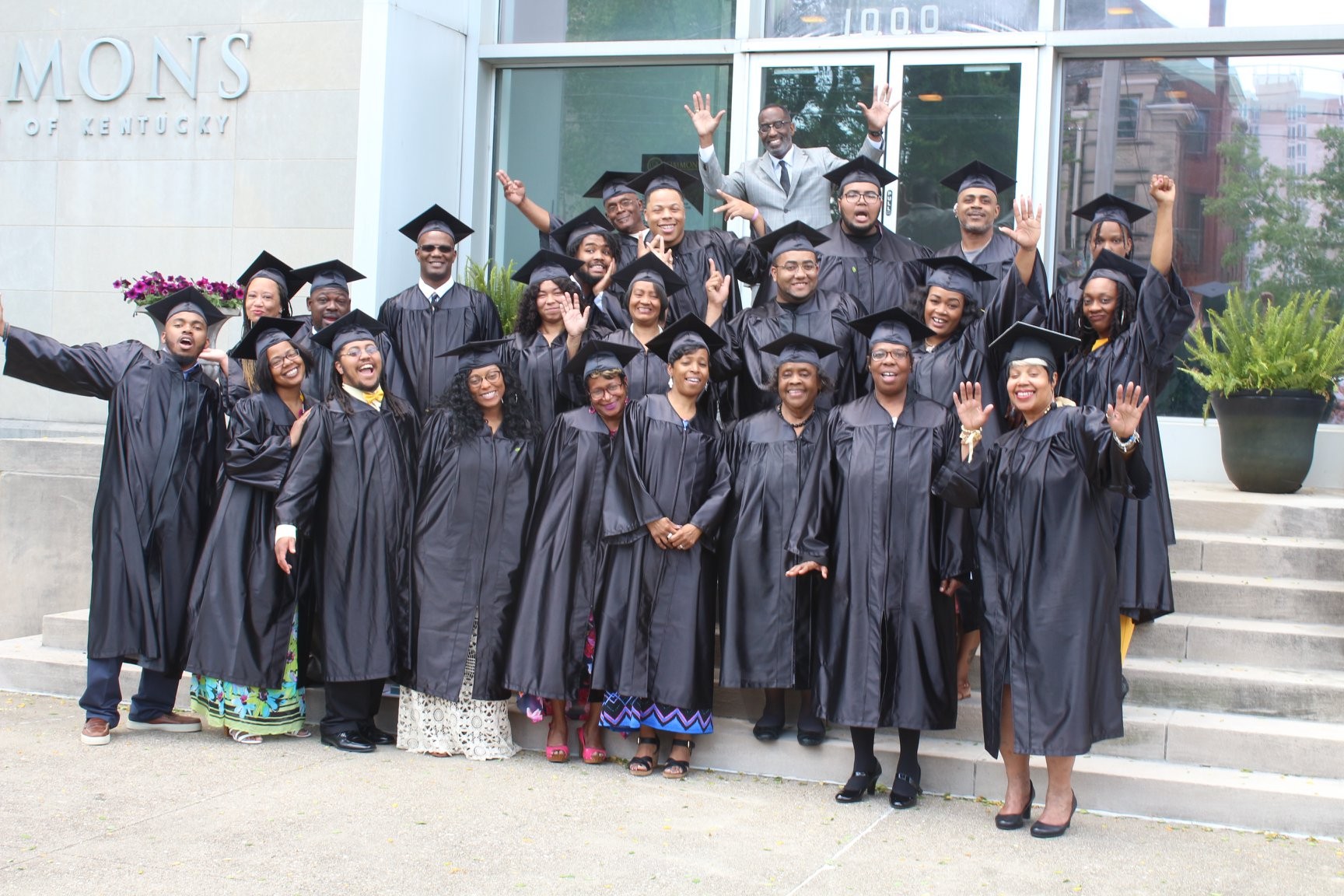DECOLONIZED CURRICULA
While African American History has been introduced as an elective with JCPS, teachers have not elected to teach it, and students have not actively selected the course as an elective (including the high school students who were integral in creating the course). Presenting this curricula as mandatory enables students of all races to actively engage in the history of our community. This is the type of study that creates the thought leaders that we need to help create and implement policy that can successfully begin to truly dismantle the impact that generations of inequity have had on us.
Who needs to act? You; Dr. Marty Pollio; JCPS Board of Education; Jefferson County Teachers Association
JCPS Response
On July 10, 2020, JCPS Superintendent, Dr. Martin Polio, sent a written response to the Path document. Tech Equity was specifically addressed in the statement below. You may read the full response here.
Whether instruction is provided virtually or in person, we know our curriculum must portray a broader view of history and of the prominent individuals studied in our classrooms. Best practices outlined by the JCPS Diversity, Equity, and Poverty (DEP) Department center on culturally responsive teaching and an anti-racist climate of learning. Although we have taken major steps in broadening the curriculum to meet the needs of our students, we know we have a long way to go in this area. We are prepared to take even more steps in the coming year. In addition to the Racial Equity Policy, district goals, school plans, and understanding the tenor of the community and country, JCPS is also looking to do the following:
- Create a teacher design institute that honors and acknowledges Black contributions, Black experiences, and Black thought.
- Ensure that a Black Student Union is available in every middle and high school.
- Encourage to the fullest extent possible that contractors use minority- and women-owned businesses for district projects.
- Consider hiring an employee resource manager who will field and address issues, concerns, trends, and opportunities based on feedback from protected classes in the organization.
- Use an equity tool to identify potential leaders in JCPS.
- Include a racial equity goal for all leaders, for which they are accountable.
- Train counselors on racial climate and prepare them to counsel students in a way that will not dismiss nor diminish the local and national episodes of events that impact them.
- Develop a plan for district leaders around making the local and national events teachable moments and how to potentially respond to actions and sentiments of staff and students.
A more inclusive curriculum that includes a holistic view of African-American history is part of our Racial Equity Plan and is being adjusted for the 2020-21 school year. In Kentucky, school districts do not have the authority to mandate curricular decisions, but we have found that our schools are committed to offering more inclusive curricula. We have taken steps to ensure that every high school will offer classes specifically designed to teach African-American History and/or Literacy classes. Additionally, the social studies curriculum was recently revamped in the fifth and eighth grade to include the recognition of Juneteenth as well as other more inclusive aspects of history.






